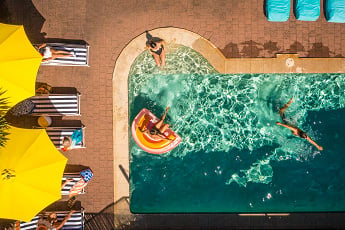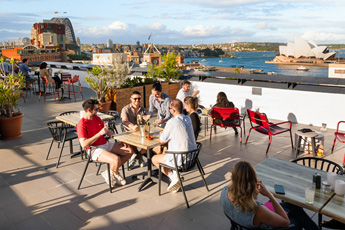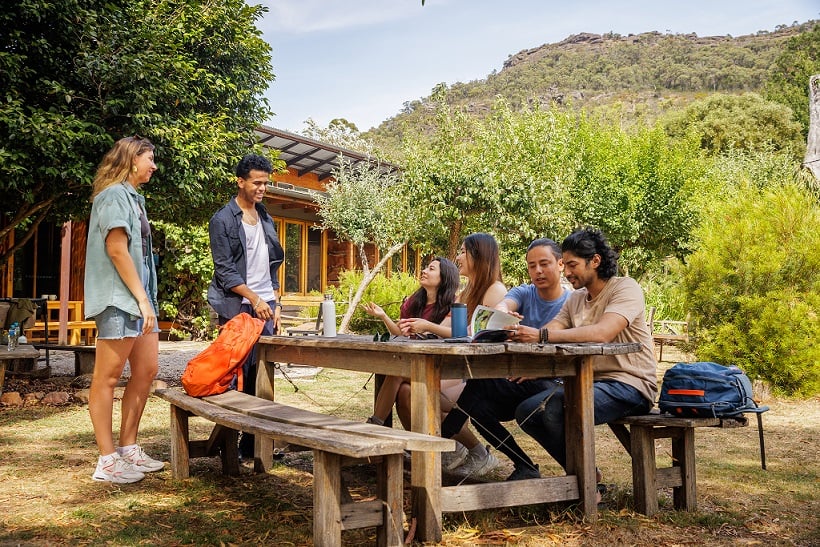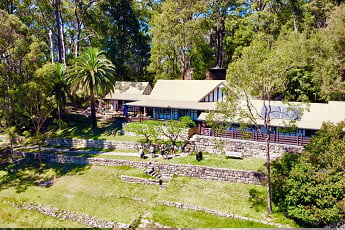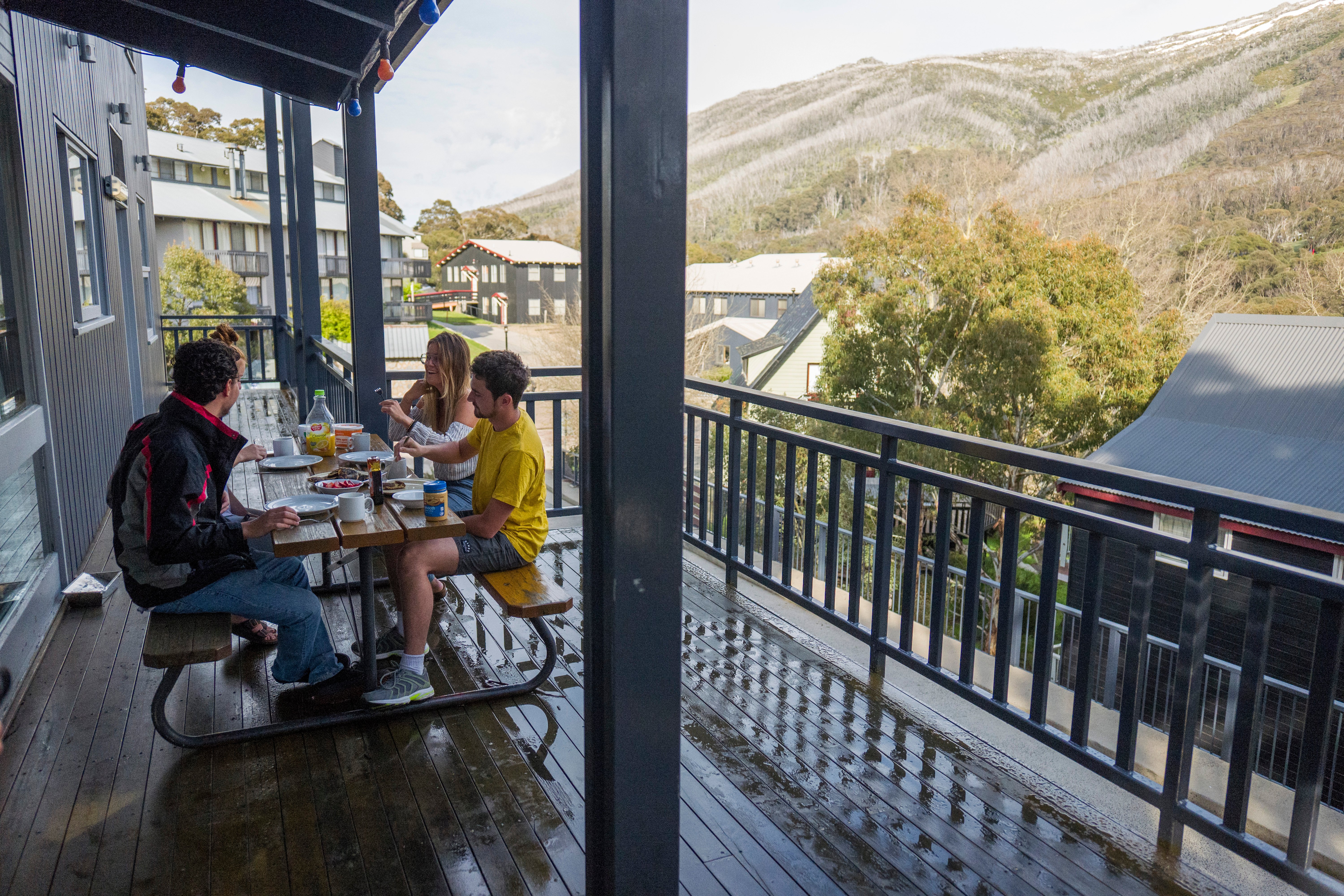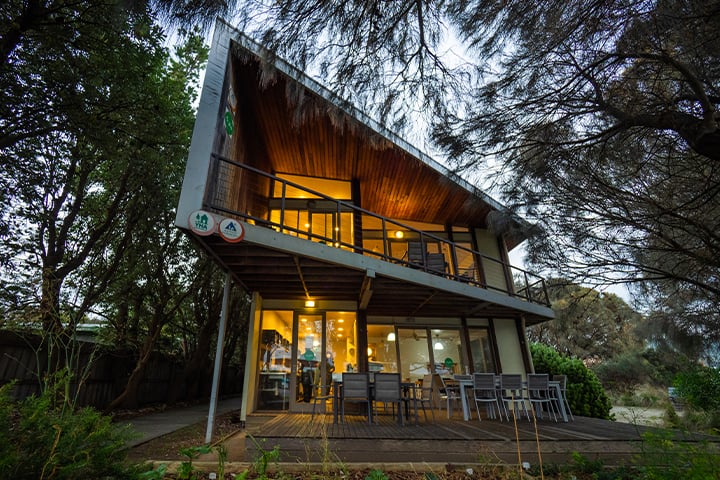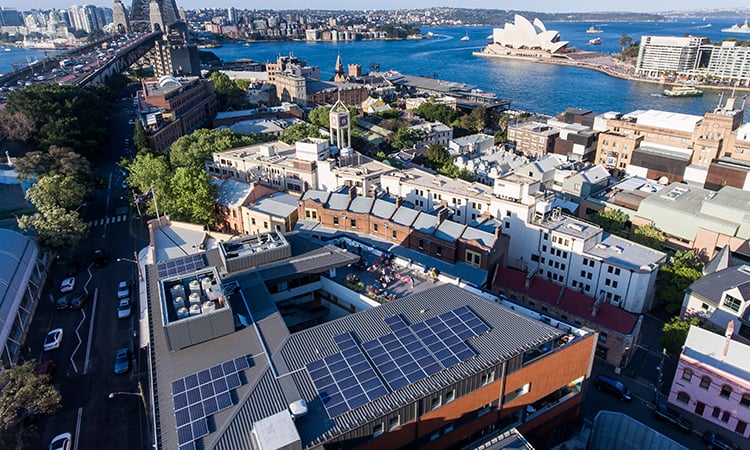The best part of my Byron stay wasn’t the beaches

Image: Troy Nenkervis | Cape Byron Lighthouse
I’ve been to the Northern Rivers plenty of times, but my recent stay at YHA Byron Bay felt different in the best way. From the moment I arrived, the place had a buzz that was hard to resist. Guests lounged barefoot in hammocks near the courtyard, swapping stories of road trips gone right and wrong. The strum of a guitar carried across the pool area, while the smell of garlic and onion drifted from the communal guest kitchen. It all felt easy and alive. My co-living bed was comfortable, the weather was perfect, and I felt instantly at home. But what really caught my attention wasn’t the vibe or even Byron’s natural beauty. It was how YHA is making sustainability an essential part of everyday travel.
Breaking my assumptions
Byron Bay has long been known for its eco-conscious spirit. Think farmers’ markets, refill stations, and vegan cafés. And while this community has been protecting its backyard for decades, I was genuinely impressed to see YHA putting those values into practice in such a practical way.
Solar panels power much of the property. Rainwater is collected and used on site. Low-energy lighting brightens shared spaces. These aren’t tokenistic gestures. They’re everyday choices that make sense. For me, it also flipped the assumption that eco-friendly travel belongs only to luxury resorts or five-star hotels. YHA Byron Bay is proving that affordable accommodation can also offer a low-impact stay, without skimping comfort or fun.
A social kind of sustainability
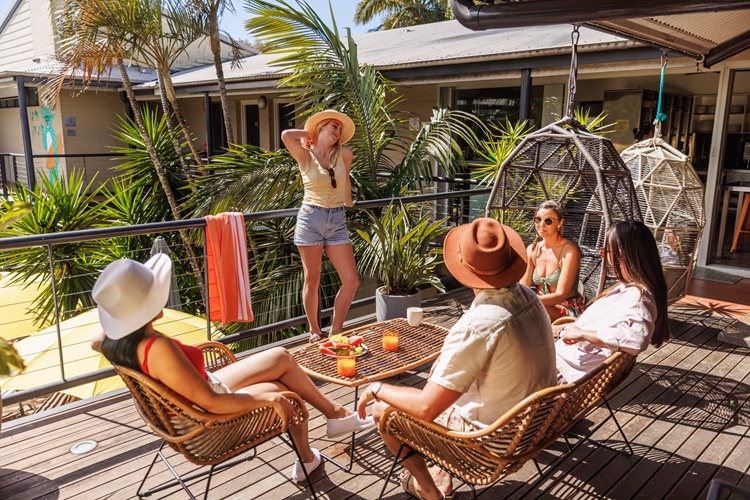
Image: Social spaces to meet other travellers | YHA Byron Bay
The heart of any YHA stay is the shared spaces. Guest kitchens, lounges, and co-living areas are more than just facilities. These are places where travel memories take shape. At YHA, those same spaces also help reduce resource use. Cooking together means less food waste. Shared lounges use less heating and cooling. Co-living design encourages people to swap meals, tips, and even the cost of a road trip.
These choices may seem small, but when multiplied across thousands of guests each year, the effect is significant. And there’s something bigger too. At its best, sustainability is about connection: the connection to place, to people, and to the environment. Long conversations over shared meals, impromptu music sessions, or hikes planned with new friends remind me that social sustainability is just as important as solar panels and recycling bins.
Importantly, half of YHA’s locations are also eco-certified, which means these practices aren’t occasional gestures. They’re built into everyday operations, whether you are staying on a Sydney rooftop or deep in the Grampians.
Your green adventure starts here
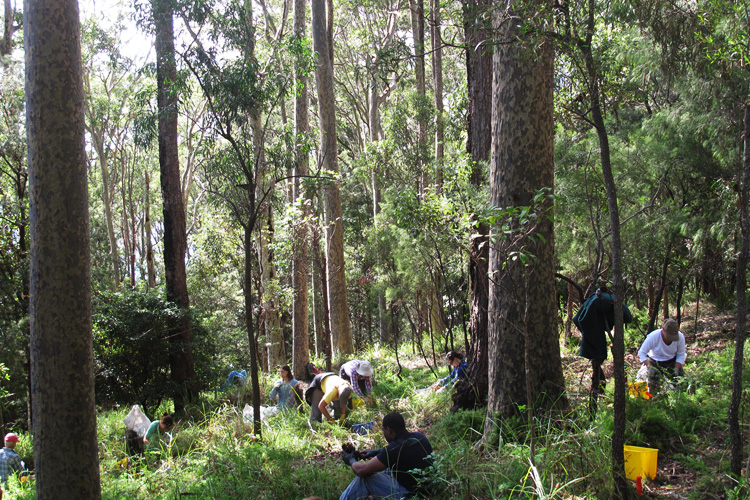
Image: Join community events like bush regeneration | YHA Pittwater Eco
Across the country, YHA destinations are proving that eco-travel doesn’t mean giving anything up. In fact, it often gives you more. It could be joining a bush regeneration workshop, helping with a beach clean-up, or simply cooking alongside fellow travellers with local produce from the market down the road. These experiences aren’t just environmentally responsible. They bring you closer to the places you are exploring.
Behind the scenes, YHA is also investing in renewables, setting a zero-waste target, and upgrading equipment so locations are more efficient every year. For travellers, it’s a reminder that responsible stays can be affordable, practical, and rewarding all at once.
What eco travel looks like in 2025
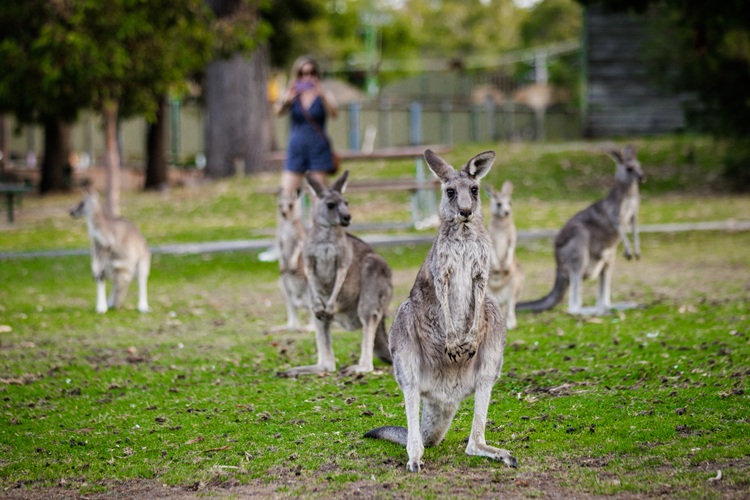
Image: By being eco-conscious you help proctect natural habitats | YHA Grampians Eco
Sustainable travel also doesn’t need to be complicated.
At YHA, it’s more geared towards small everyday choices, whether it’s filling a reusable water bottle, hopping on a bus instead of a rideshare, taking shorter showers, or booking an eco-certified stay. Because of the way YHA is designed, many of these choices happen naturally. Guests already share space, meals, and resources, which saves money and reduces waste. Sustainability is second nature rather than something you need to think too hard about.
Wildlife encounters are another reminder of why these choices matter, whether its kangaroos grazing at dusk in the Grampians, sea eagles circling above Pittwater or dolphins riding the waves near Byron. Staying at eco-conscious properties supports the habitats that make these moments possible.
Why Spring is the sweet spot
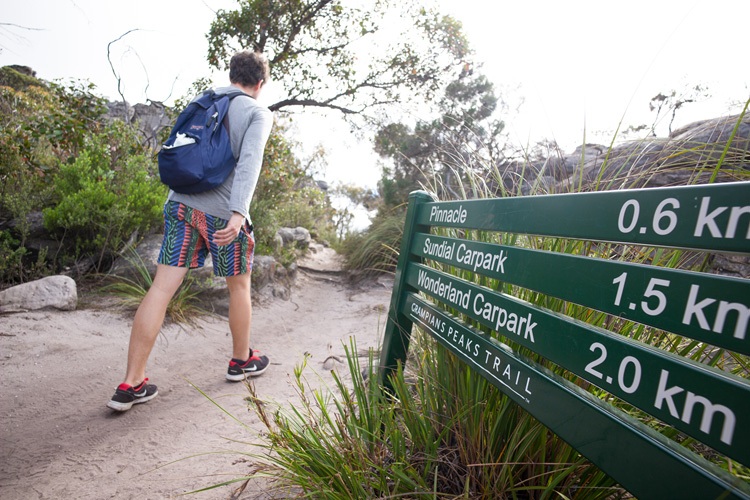
Image: Spring is the best time to explore trails and hikes | Grampians National Park
When to go? Spring is one of the best times to plan an eco-stay. The weather is mild, so energy use drops, and the longer daylight hours make it easier to be outside from morning until night. The bush is alive with new growth, trails are easier to navigate, and beaches are calmer with fewer crowds. Wildlife is at its most active, and seasonal eco-projects are in full swing. It’s the time of year when bush regeneration flourishes, wildlife monitoring peaks, and coastal clean-ups are more effective.
For travellers, it’s the season where comfort, adventure, and environmental responsibility all come together perfectly. Whether you are hiking alpine trails, paddling Pittwater, or exploring the Great Ocean Road, spring gives every experience a fresh sense of purpose.
Why eco-travel matters
My Byron Bay stay reminded me that sustainability in travel doesn’t need to be complicated or expensive. It doesn’t mean giving things up, either. At YHA, you get affordability, comfort, connection, and the satisfaction of knowing your choices are part of something bigger. Sustainability is about more than using less. It’s about gaining more. Richer experiences, deeper connections, and a stronger bond with the places we explore.
When we choose to travel lighter, we are not just protecting landscapes and wildlife. We are helping ensure future travellers get to experience them too.
Words: Troy Nankervis
Properties that extend the feel-good factor
The eco-story at YHA is more than where you lay your head. Many properties host activities that let travellers give back, from tree-planting to citizen science. It’s an invitation to not just experience nature but to help protect it.
YHA Sydney Harbour proves sustainability belongs in the city too. With water-saving systems, recycling programs, and energy-efficient tech, guests can soak in world-famous views knowing their stay supports responsible practices.
YHA Pittwater Eco, sitting on the waterfront north of Sydney, utilises solar energy. Guests can kayak, hike, or join beach clean-ups, knowing their stay supports marine conservation.
YHA Thredbo, in the Snowy Mountains, shows how alpine stays can be low impact. Energy-efficient heating and sustainable food practices let guests enjoy snow sports, hikes, and bike trails while treading lightly.
YHA Grampians Eco, near Hall’s Gap, is a hub for wildlife encounters and hands-on eco activities. Kangaroos, echidnas, and birds abound, while guests can join regeneration workshops and monitoring projects.
YHA Apollo Bay Eco, along the Great Ocean Road, blends solar power, recycling, and water-saving into daily life. From whale-watching to farmers’ markets, guests connect with both the coast and the community.
Sustainability at YHA
Properties across our network feature energy-efficient and water-saving features like solar panels, rainwater tanks and recycling facilities.
